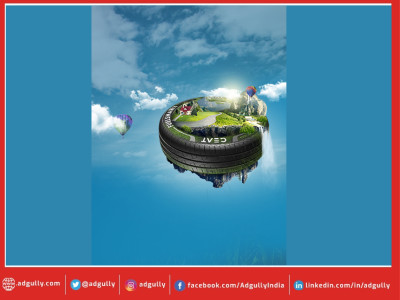Shaping the Future: Real Estate Projects and Trends for FY24-25
Is there a finance influencer who has not tackled the Rent vs. Buy debate in their content? Despite varying opinions, the dream of owning a home in India persists as an ultimate aspiration. Having collaborated with some of the finest brands in this domain over the last 14 years, I believe the Indian real estate sector is witnessing its most vibrant era since independence. Below, we explore five transformative trends redefining real estate in India.
Technological Integration in Real Estate
Historically, real estate has lagged in technology adoption compared to other sectors in India. However, the past few years have marked an inflection point, with FY24-25 poised to herald significant change. The industry's challenges have distilled into three core focuses: quality, timely delivery, and customer experience. Achieving these on a large scale is infeasible without the leverage of technology. Consequently, discussions on adopting construction technology, architectural design innovations, and efficiency-enhancing tech are becoming commonplace in developers' boardrooms. This emphasis on technology as a foundational element will permeate all subsequent trends.
Sustainability and Green Building Projects
Despite a 2050 goal for carbon neutrality, there's a perception that the real estate industry's sustainability efforts are insufficient. Yet, a closer examination reveals a potential exponential increase in sustainable initiatives. Customer awareness about the benefits of sustainable projects — notably, long-term maintenance savings — is growing. This shift, initially more pronounced in metropolitan areas, represents a promising start. Meanwhile, the proliferation of technology firms and startups addressing sustainability at scale suggests a nearing tipping point. Once consumers recognize the immediate and long-term financial advantages of sustainable living, the narrative will likely pivot towards broader adoption of these practices.
Emerging Market Trends and Consumer Preferences
Today, the top 10 cities account for 400,000 new home purchases annually. With India's GDP growth, rising per capita income, and urban migration, this figure could increase tenfold in a decade. The pandemic underscored the limitations of smaller living spaces, driving nationwide demand for larger homes. This trend, alongside the demand for luxury homes and smart city developments, is expanding real estate investment opportunities to tier 2 cities, with major developers beginning to explore these new markets. Furthermore, as disposable incomes grow, branded land is emerging as a mainstream asset class, with fractional ownership leading the way in diversifying investment portfolios.
The Future of Sales and Marketing in Real Estate
Despite technological advances, the home buying experience remains fraught with inefficiencies. The adoption of advanced CRM, ERP, CDP, and IXP platforms is set to enhance operational efficiency for developers, while also revolutionizing engagement strategies for brokers and developers alike. The shift from traditional property searches to digital twins, conversational transactions, and influencer-led engagements points towards a digital transformation in real estate sales and marketing. This evolution, fueled by AI and data analytics, promises a more refined customer engagement and an improved purchasing journey.
The Future of Customer Search of Home Aided by Proptech Players and Brokers
The Indian market, unlike the US, has yet to see a surge in real estate unicorns, primarily due to the dominance of primary market sales. The real potential for growth and profitability lies in the secondary market, which is poised for expansion. In response, Proptech companies are enhancing the home-buying journey with comprehensive services, from financing to moving and interior decorating. Meanwhile, brokers, empowered by digital-first strategies, have dramatically increased their contribution to sales, sometimes outperforming developers. This emerging dynamic hints at a future where content and influencer marketing play pivotal roles in customer engagement and transactions.
Conclusion
The past decade has brought significant regulatory and operational transformations to the Indian real estate sector, restoring consumer confidence in an historically opaque market. The advent of corporate giants and the expansion of family-run businesses into national brands are injecting new vitality into the industry. Today, customers are empowered to demand more from their dream homes, signalling an era of unprecedented engagement and aspiration in Indian real estate.
Authored by Govind Rai, CEO and Co-Founder, Insomniacs – Real Estate Marketing, Data Analytics and Technology Network.
















Share
Facebook
YouTube
Tweet
Twitter
LinkedIn